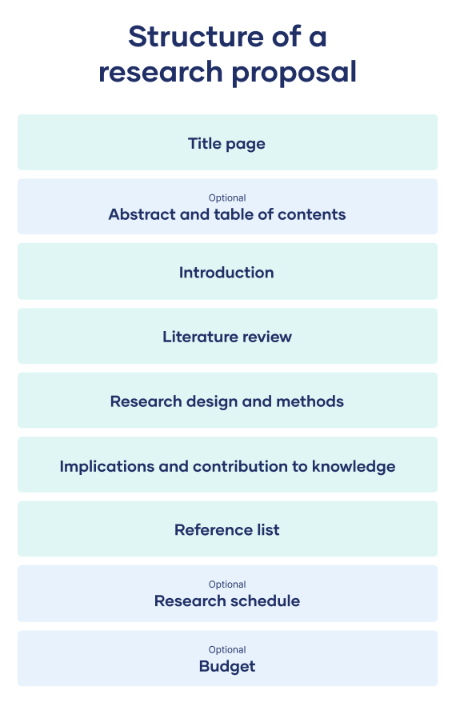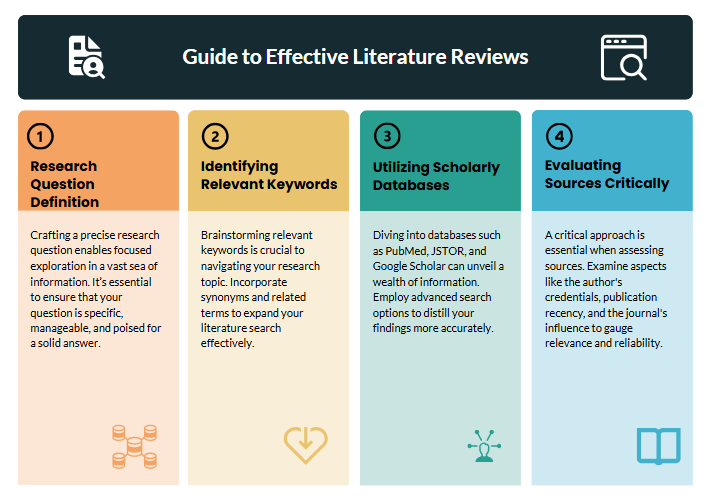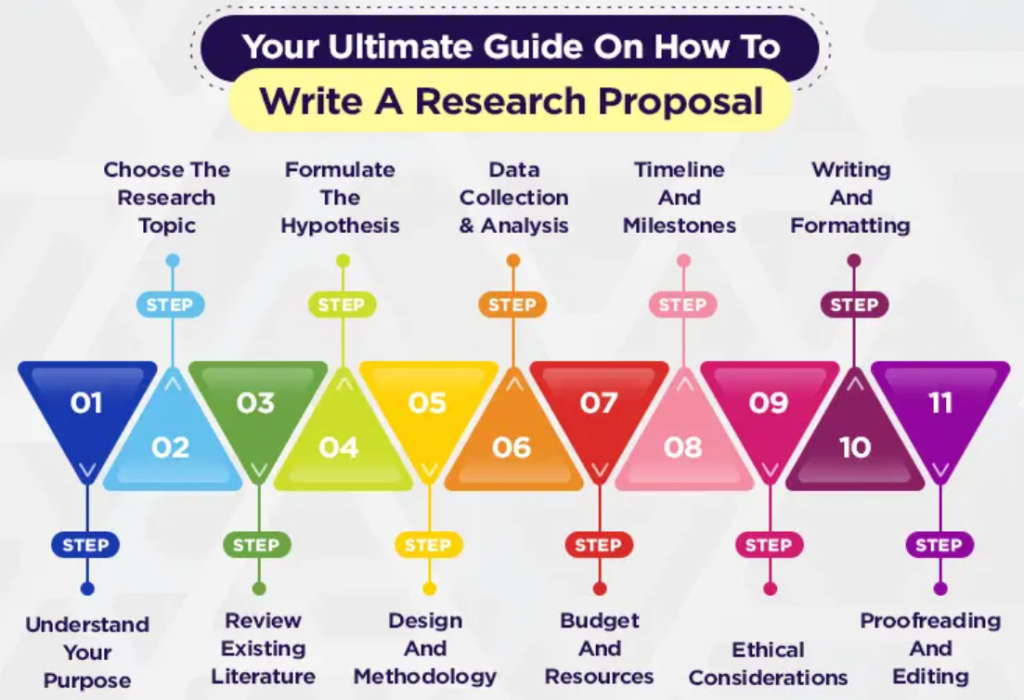
Table of Contents
The prospect of crafting a compelling research proposal for nursing can feel daunting. However, with a structured approach and a clear understanding of the process, you can create a document that effectively communicates your research vision and secures the necessary funding and approvals.
This comprehensive guide will walk you through each step, providing practical advice and examples to help you write a winning research proposal for nursing.
Understanding the Purpose of a Research Proposal for Nursing
A research proposal for nursing is more than just a summary of your intended research; it’s a persuasive argument for the value and feasibility of your project. It’s your opportunity to convince reviewers – be they funding bodies, ethics committees, or academic supervisors – that your research is significant, original, and methodologically sound. A strong research proposal for nursing clearly articulates the problem you aim to address, the methods you’ll employ, and the potential impact of your findings on nursing practice, education, or policy. It essentially acts as a roadmap for your research journey. This research proposal for nursing must demonstrate your understanding of the existing literature, your chosen methodology, and the ethical considerations surrounding your study.
Key Components of a Research Proposal for Nursing
A typical research proposal for nursing includes the following sections:
A. Title: The title should be concise, informative, and accurately reflect the research focus. Avoid jargon and ensure it’s engaging enough to capture the reader’s attention. For example, instead of “The Effect of X on Y,” consider a more descriptive title like “Reducing Post-Operative Pain in Elderly Patients through Non-Pharmacological Interventions: A Randomized Controlled Trial.” The title is the first impression of your research proposal for nursing, so make it count.
B. Abstract: The abstract provides a brief overview of your entire research proposal for nursing. It summarizes the research problem, objectives, methodology, and expected outcomes. Keep it concise and impactful, usually within 250-300 words. It is crucial for grabbing the reviewer’s attention, providing a concise summary of your proposed research for nursing.
C. Introduction: This section sets the stage for your research. Begin by establishing the context of your study, highlighting the significance of the problem you are addressing. Clearly state the research problem and its relevance to nursing practice. Support your claims with evidence from the existing literature, demonstrating your thorough understanding of the topic. This introduction is vital for showcasing the value of your research proposal for nursing.
D. Literature Review: This is a crucial section of your research proposal for nursing. It comprehensively reviews existing literature relevant to your research question. Demonstrate a critical understanding of the literature, identifying gaps in knowledge and highlighting the need for your study. The literature review should logically lead to your research question and hypotheses. This section justifies the value of your proposed research for nursing within the broader context of the field.
E. Research Question(s) and Hypotheses: Clearly state your research question(s) and, if applicable, your hypotheses. These should be specific, measurable, achievable, relevant, and time-bound (SMART). Your research questions should directly address the problem identified in your introduction. Ensure your hypotheses are testable and aligned with your chosen methodology. The clarity of your research questions is paramount to a well-structured research proposal for nursing.
F. Methodology: This section describes the research design, participants, data collection methods, and data analysis techniques. Be specific and detailed. Justify your chosen methodology, explaining why it is appropriate for addressing your research question. This section is critical to demonstrating the rigour and feasibility of your research proposal for nursing.
G. Ethical Considerations: Address the ethical implications of your research. Clearly outline how you will obtain informed consent, protect participant confidentiality, and minimize potential risks. You should also mention the ethics review process and any relevant ethical approvals you have obtained or plan to obtain. Ethical consideration is a key aspect of any serious research proposal for nursing.
H. Data Analysis Plan: Describe the statistical or qualitative methods you will use to analyze your data. Be precise in outlining the steps you will take to analyze your data, ensuring your chosen methods align with your research question and the nature of your data. This demonstrates the careful planning inherent in your research proposal for nursing.
I. Timeline and Resources: This section outlines the project timeline, specifying key milestones and deadlines. It also includes a budget outlining the resources required to conduct the research (personnel, materials, equipment, etc.). A realistic timeline and budget are essential for a credible research proposal for nursing.
J. Dissemination Plan: Describe how you intend to disseminate your research findings. This might include publications in peer-reviewed journals, presentations at conferences, or reports to relevant stakeholders. A clear dissemination plan highlights the potential impact of your research proposal for nursing.
K. References: Include a comprehensive list of all references cited in your proposal, following a consistent citation style (e.g., APA, MLA). Accuracy and consistency in your referencing demonstrates the professionalism of your research proposal for nursing.

Tips for Writing a Successful Research Proposal for Nursing
- Start Early: Give yourself ample time to plan, research, and write your proposal. Rushing the process can lead to errors and omissions. A well-written research proposal for nursing requires careful planning and dedicated time.
- Seek Feedback: Share your draft with colleagues, mentors, or supervisors for feedback. Constructive criticism can help you identify areas for improvement. The input of experienced peers is invaluable in refining your research proposal for nursing.
- Write Clearly and Concisely: Use clear, concise language, avoiding jargon and technical terms that might be unfamiliar to your audience. Your research proposal for nursing should be accessible and easy to understand for a broad readership.
- Focus on Significance: Clearly articulate the significance of your research and its potential impact on nursing practice, education, or policy. Highlight the novelty and contribution of your study. The value proposition of your research proposal for nursing is paramount for securing approval.
- Be Realistic: Ensure that your research proposal for nursing is feasible within the given timeframe and resources. Avoid overambitious goals that are unlikely to be achieved.
- Follow Guidelines: Carefully review and adhere to any specific guidelines provided by the funding body or institution. Following guidelines demonstrates your attention to detail and commitment to the process of submitting a research proposal for nursing.
Examples of Strong Research Proposals for Nursing
Strong research proposals for nursing often address pressing issues in healthcare. Examples might include:
- Investigating the effectiveness of a new intervention to reduce hospital-acquired infections.
- Evaluating the impact of a patient education program on medication adherence.
- Exploring the experiences of nurses working in intensive care units.
- Examining the relationship between nurse staffing levels and patient outcomes. Each of these examples represents a strong foundation for a compelling research proposal for nursing.
The Common Pitfalls to Avoid in a Nursing Research Proposal
Crafting a compelling research proposal for nursing is crucial for securing funding, gaining ethical approval, and ultimately, conducting impactful research. However, many aspiring nursing researchers stumble upon common pitfalls that can derail their project before it even begins. Understanding these potential problems and learning how to avoid them is key to the success of your research proposal for nursing.
1. Unclear Research Question and Objectives
A poorly defined research question is the most significant hurdle in any research proposal for nursing. A vague or overly broad question will lead to a rambling, unfocused proposal and ultimately, inconclusive results. Your research question should be specific, measurable, achievable, relevant, and time-bound (SMART). It should clearly articulate the problem you aim to address and the knowledge gap you intend to fill. Similarly, your research objectives must directly address your research question and outline the specific steps you’ll take to achieve your goal. Avoid using ambiguous terms or overly ambitious objectives that cannot be realistically accomplished within the proposed timeframe and resources.
2. Insufficient Literature Review
A thorough and critical literature review is essential for a strong research proposal for nursing. This section demonstrates your understanding of the existing knowledge base, identifies gaps in the research, and justifies your proposed study. Simply summarizing existing studies is insufficient; you must critically analyze the findings, highlighting inconsistencies, limitations, and areas requiring further investigation. Your literature review should directly support your research question and objectives, demonstrating a clear link between your proposed study and the current state of knowledge. Failing to adequately review the literature suggests a lack of preparedness and understanding of the field.

3. Weak Methodology
The methodology section of your research proposal for nursing is where you describe your research design, sample size, data collection methods, and data analysis techniques. This section must be detailed, rigorous, and justifiable. You need to clearly articulate why you’ve chosen specific methods and how these methods will allow you to answer your research question. Justify your sample size with appropriate power calculations and explain how you will recruit participants ethically. Clearly outline your data analysis plan, including the statistical tests you will use. A weak methodology section will raise concerns about the feasibility and validity of your research.
4. Unrealistic Timeline and Budget
A realistic timeline and budget are crucial for a successful research proposal for nursing. Underestimating the time required for each stage of the research process—from literature review to data analysis to writing up the results—is a common mistake. Similarly, underestimating the cost of materials, equipment, personnel, and other resources can lead to project delays or even abandonment. Your budget should be detailed and justified, clearly outlining how each expense contributes to the overall research objectives. A thorough and realistic plan demonstrates your preparedness and commitment to the project.
5. Ignoring Ethical Considerations
Ethical considerations are paramount in any research proposal for nursing, particularly when working with vulnerable populations. Your proposal must clearly outline how you will protect the rights and well-being of participants, including obtaining informed consent, ensuring confidentiality, and minimizing potential risks. This involves adhering to relevant ethical guidelines and regulations, such as those provided by your institution’s ethics review board. Ignoring ethical considerations can lead to rejection of your proposal and, more seriously, to harm to participants. A well-structured research proposal for nursing will dedicate a substantial section to addressing these vital points.
6. Poor Writing and Presentation
Finally, even a well-conceived research proposal for nursing can be undermined by poor writing and presentation. Your proposal should be clearly written, well-organized, and free of grammatical errors and typos. Use appropriate academic language and avoid jargon. The proposal should be visually appealing and easy to navigate. A poorly written proposal suggests a lack of attention to detail and can create a negative impression on reviewers.
Addressing these common pitfalls will significantly increase the likelihood of submitting a successful and impactful research proposal for nursing. Remember, a strong proposal is the foundation of a successful research project.
Frequently Asked Questions about Research Proposal for Nursing
A research proposal for nursing is a crucial document that outlines a planned research study. It serves as a roadmap for the researcher, demonstrating their understanding of the research area, methodology, and anticipated outcomes. Successfully crafting a strong research proposal is vital for securing funding, gaining ethical approval, and ensuring the study’s successful completion. The following are some frequently asked questions about this critical process.
1. What exactly is included in a research proposal for nursing?
A comprehensive research proposal for nursing typically includes the following sections:
- Introduction: This sets the context, stating the problem being addressed, its significance, and the research question(s) or hypothesis. It should clearly demonstrate the gap in current knowledge your study aims to fill.
- Literature Review: This section provides a critical analysis of existing research relevant to your topic. It shows your understanding of the current state of knowledge and how your research builds upon or challenges existing findings.
- Methodology: This is a crucial section describing your research design (e.g., quantitative, qualitative, mixed methods), your sample population, data collection methods (e.g., surveys, interviews, observations), data analysis techniques, and ethical considerations. It needs to be detailed and rigorous, demonstrating feasibility and validity.
- Timeline: A realistic timeline outlining the key stages of the research project, from ethical approval to data analysis and dissemination of findings.
- Budget: If seeking funding, this section details the estimated costs associated with the research, justifying each expenditure.
- Dissemination Plan: This section explains how the research findings will be shared, whether through publications, presentations, or other means.
2. How do I choose a suitable research topic for my nursing research proposal?
Selecting a relevant and feasible research topic is paramount. Consider the following:
- Your interests and expertise: Choose a topic you are passionate about and possess some prior knowledge in.
- Relevance to nursing practice: Focus on issues with practical implications for improving patient care, healthcare systems, or nursing education.
- Feasibility: Ensure your research question is achievable within the given timeframe and resources. Consider the availability of data, participants, and necessary equipment.
- Ethical considerations: Ensure your proposed research is ethically sound and will not harm participants.
3. What are the key differences between quantitative and qualitative research proposals for nursing?
The choice between quantitative and qualitative methods depends on your research question. Quantitative research focuses on numerical data and statistical analysis to test hypotheses and establish relationships between variables. Qualitative research, conversely, explores complex social phenomena through in-depth interviews, observations, and text analysis, focusing on understanding experiences and perspectives. A research proposal for nursing employing either approach must clearly articulate the rationale for its chosen methodology.
4. How important is the literature review in my research proposal for nursing?
The literature review is crucial. It demonstrates your understanding of the existing research in your chosen area and positions your study within the broader context. A thorough review should critically appraise relevant studies, identify gaps in knowledge, and justify the need for your research. It shouldn’t be a mere summary of individual articles but a synthesized argument supporting your research question.
5. What are the common mistakes to avoid when writing a research proposal for nursing?
Common mistakes include:
- Unclear research question: A poorly defined research question makes the entire proposal weak.
- Inadequate literature review: A superficial or incomplete literature review fails to establish the context and significance of the study.
- Unrealistic methodology: A poorly designed methodology that is not feasible or lacks rigor will likely be rejected.
- Lack of ethical considerations: Ignoring ethical aspects can lead to rejection and potential harm to participants.
- Poor writing and organization: Grammatical errors, poor structure, and unclear language can detract from the proposal’s credibility.
Writing a strong research proposal for nursing requires careful planning, meticulous research, and clear writing. By addressing these frequently asked questions and paying attention to detail, you can significantly improve your chances of securing approval and successfully completing your research. Remember to consult with your supervisor or mentor throughout the process for guidance and feedback.

Conclusion
A successful nursing research proposal requires careful planning and a clear understanding of the research process. By following outlined steps and focusing on details, you can create a compelling proposal that effectively communicates your vision and secures support for your project. A strong proposal reflects your dedication to advancing nursing and is crucial for contributing valuable knowledge to healthcare. Take the time to refine your ideas and aim for a persuasive and impactful proposal.
Get Customized Nursing Proposal Writing Help
At Nursing Papers, we have highly skilled and experienced writers to help you with crafting an authentic and compelling research proposal for nursing. Besides research proposal writing, we also do proofreading, editing, formatting and plagiarism removal. Talk to us today for assistance with writing top-notch nursing research proposals, research papers, case studies, essays and dissertations.







